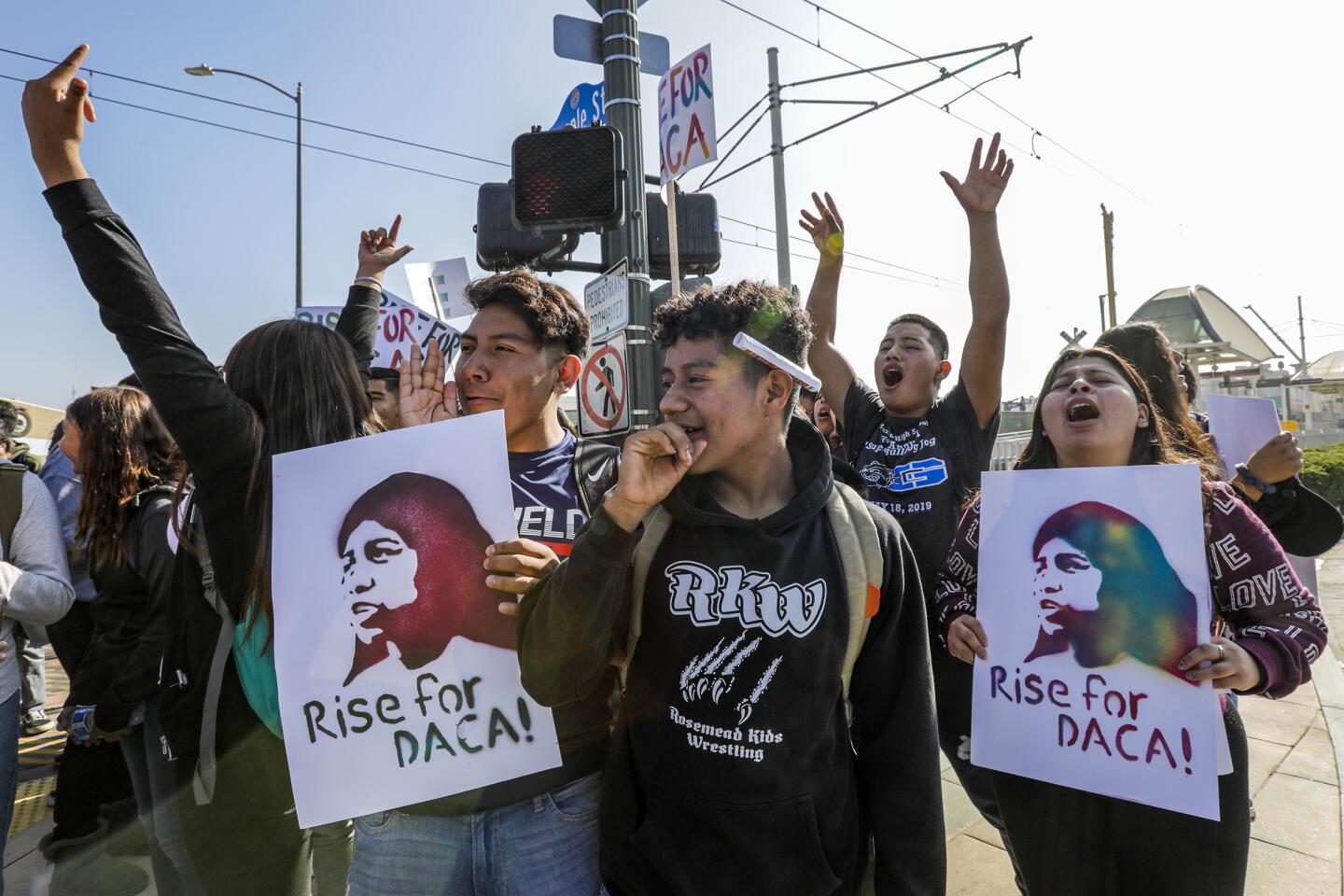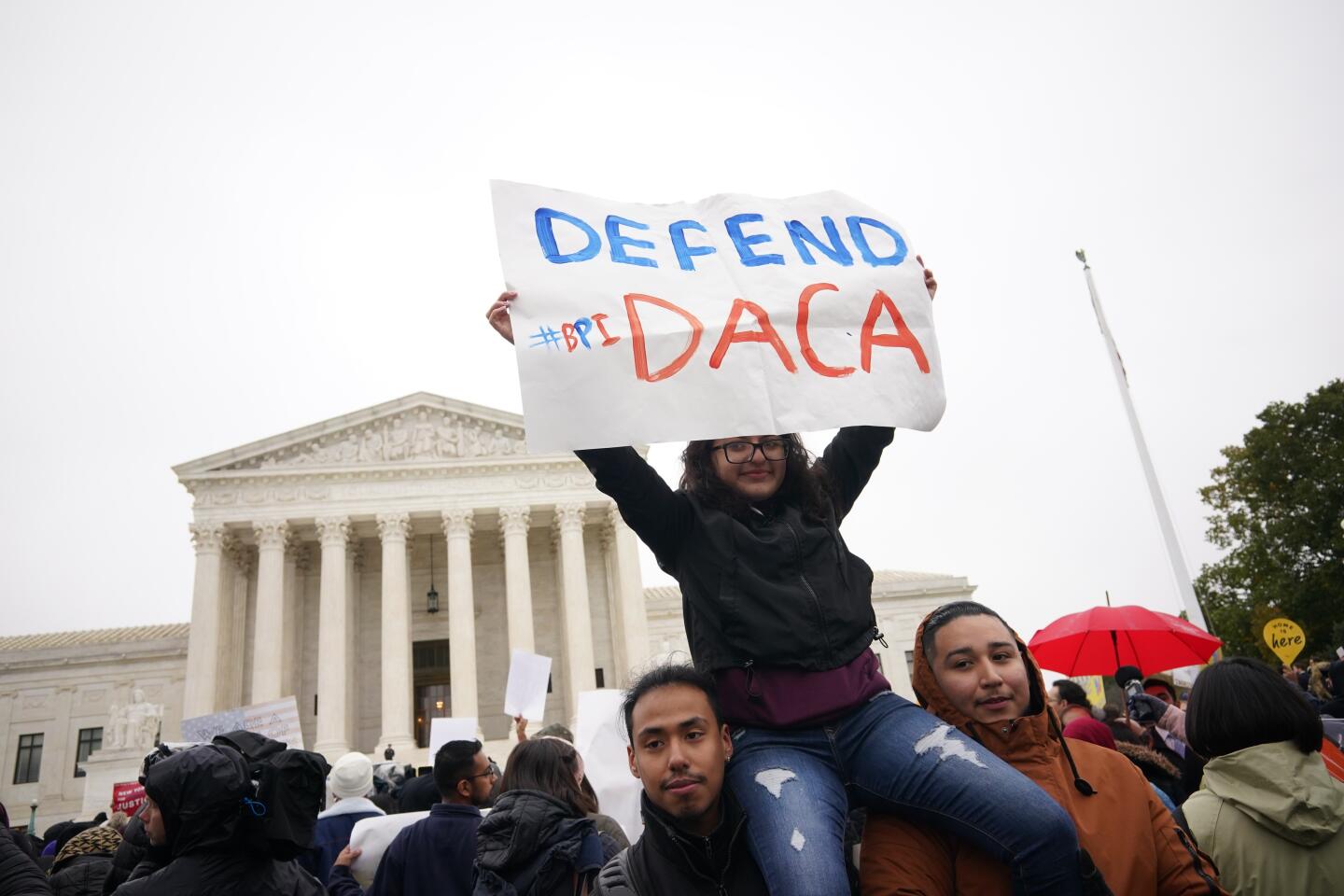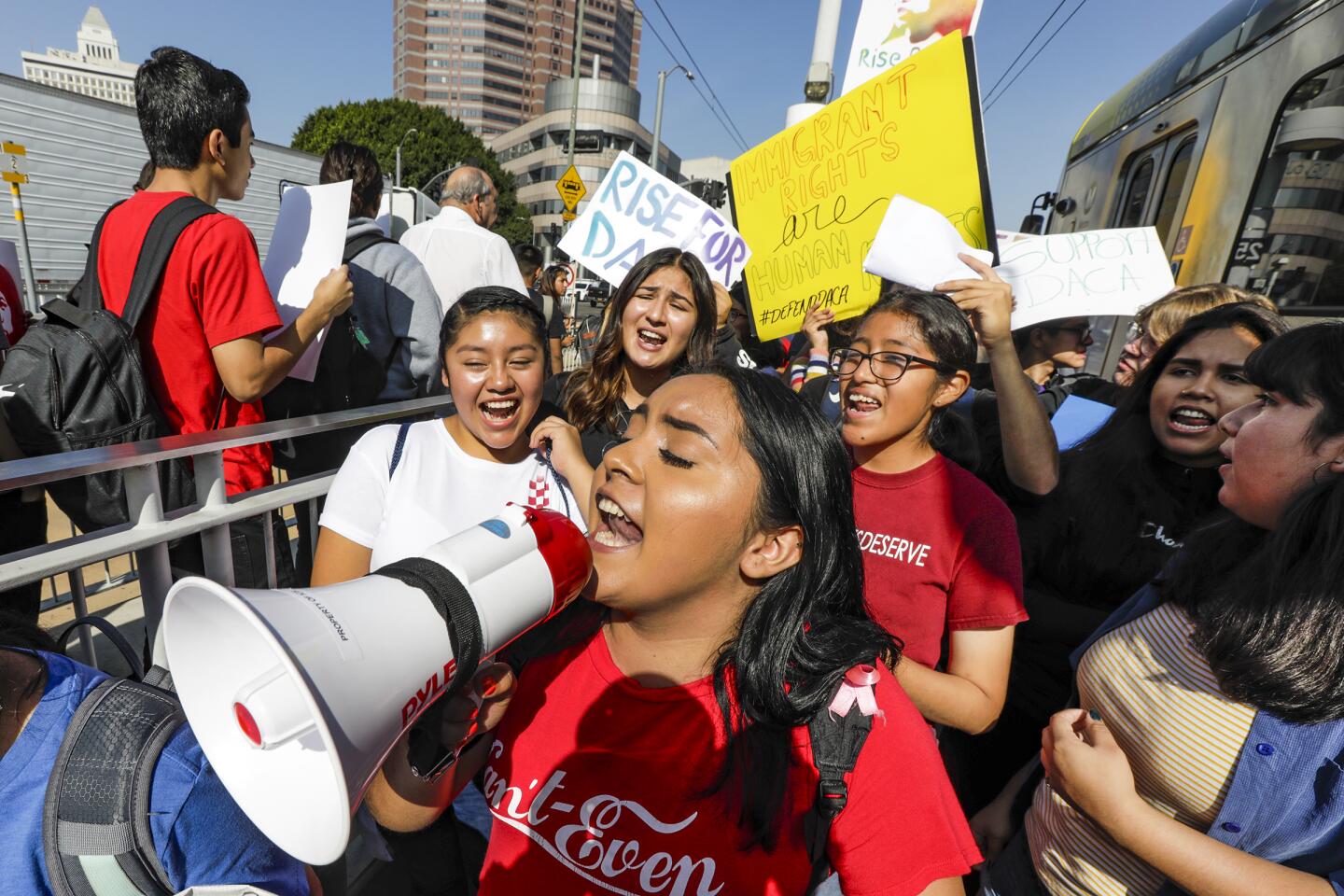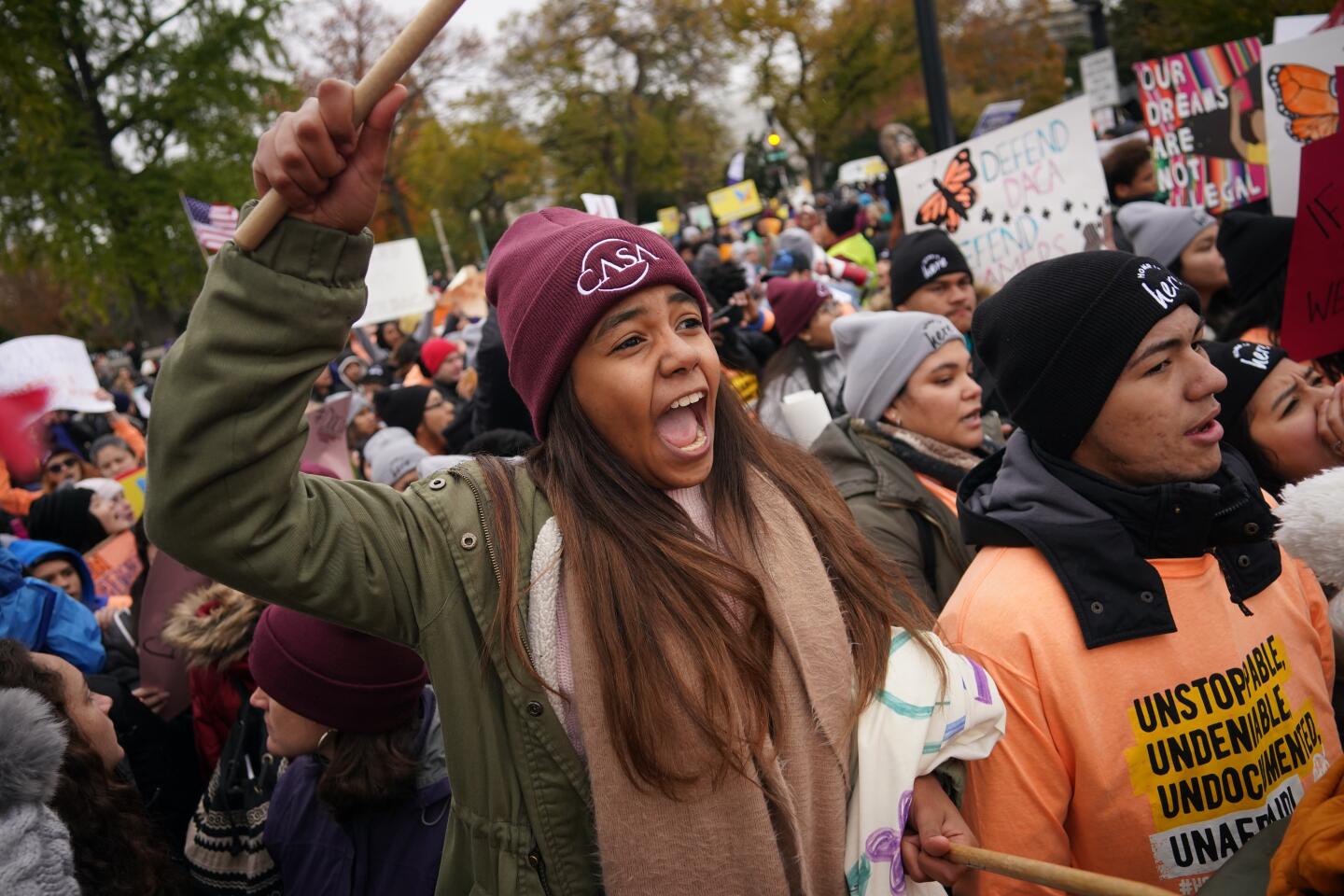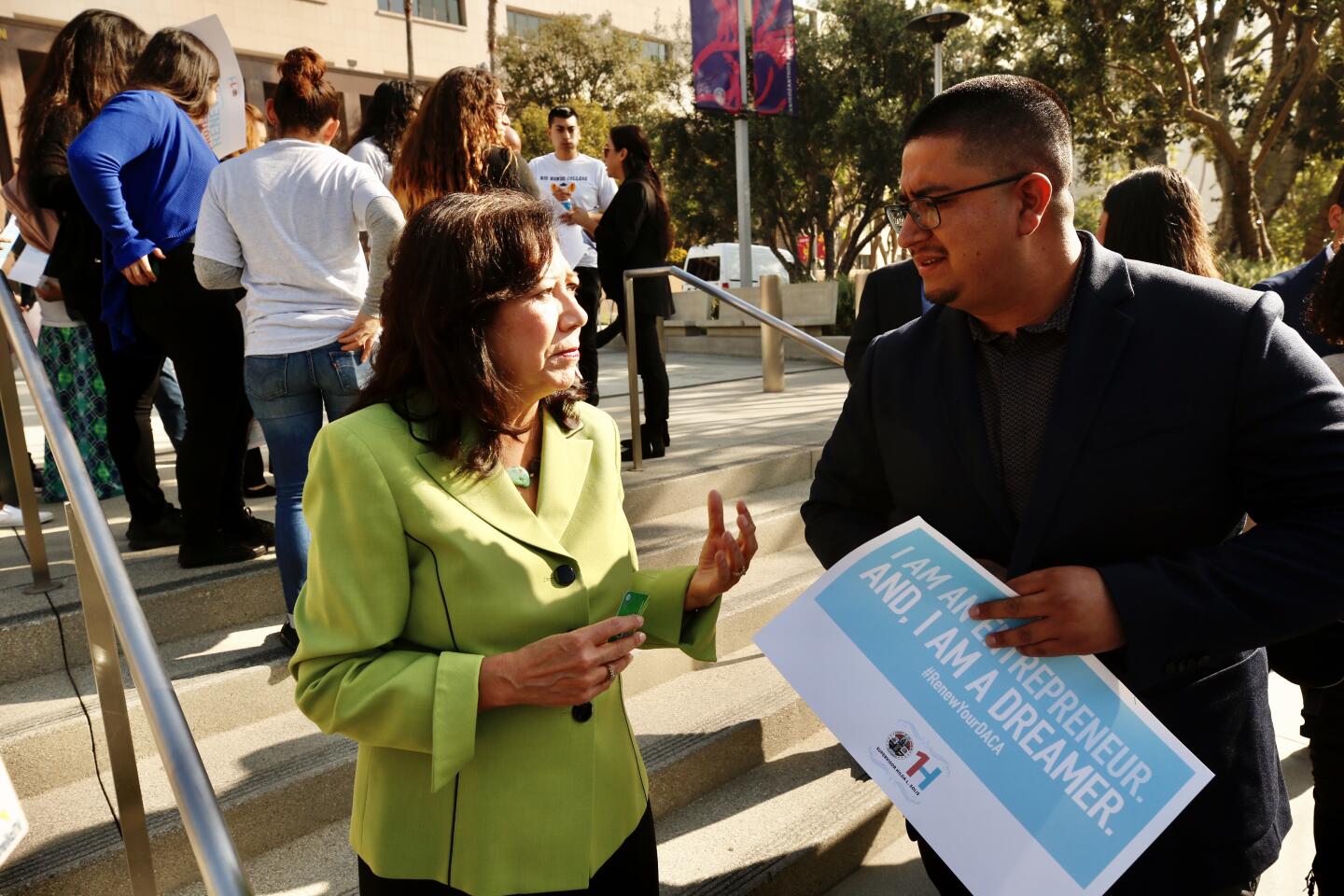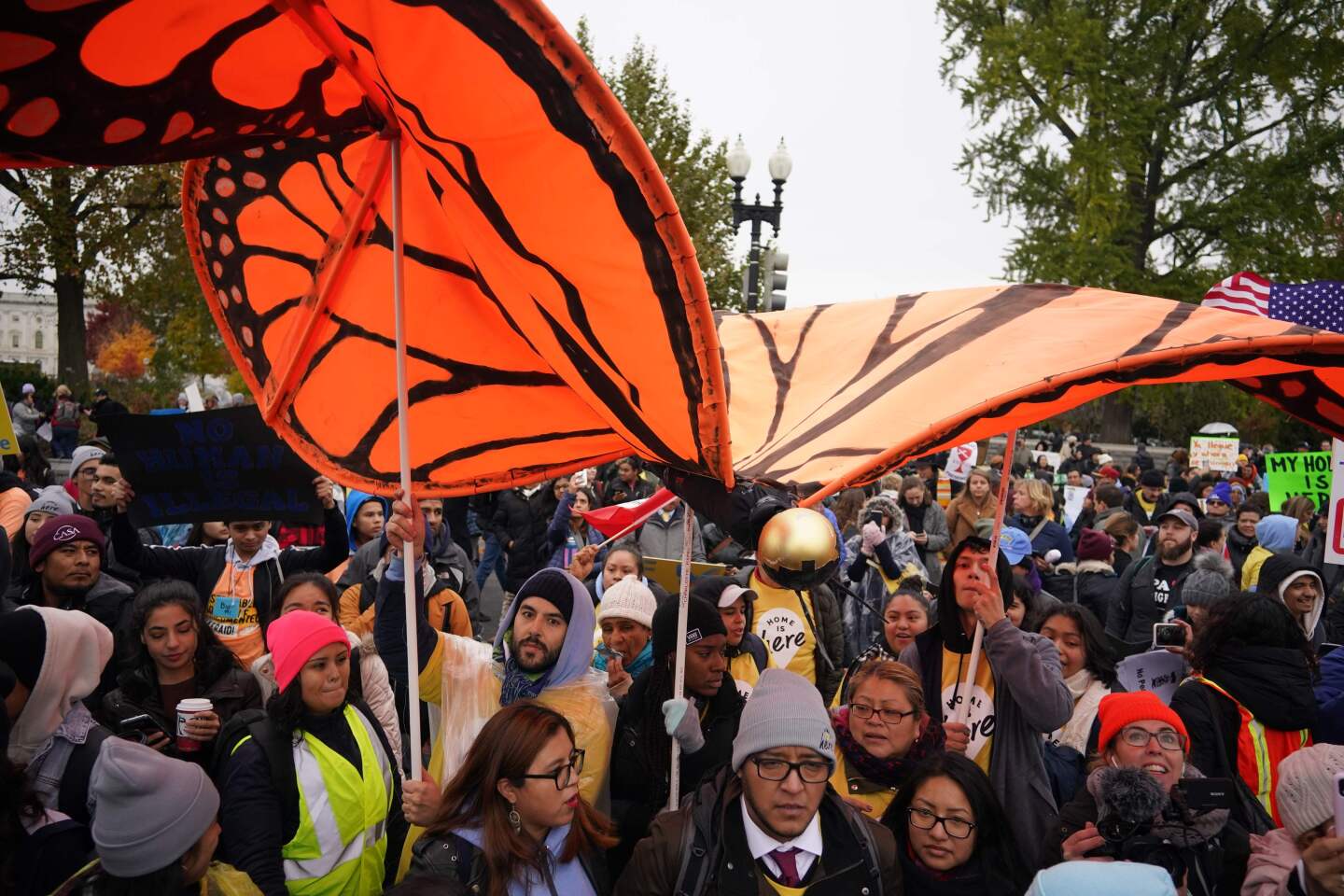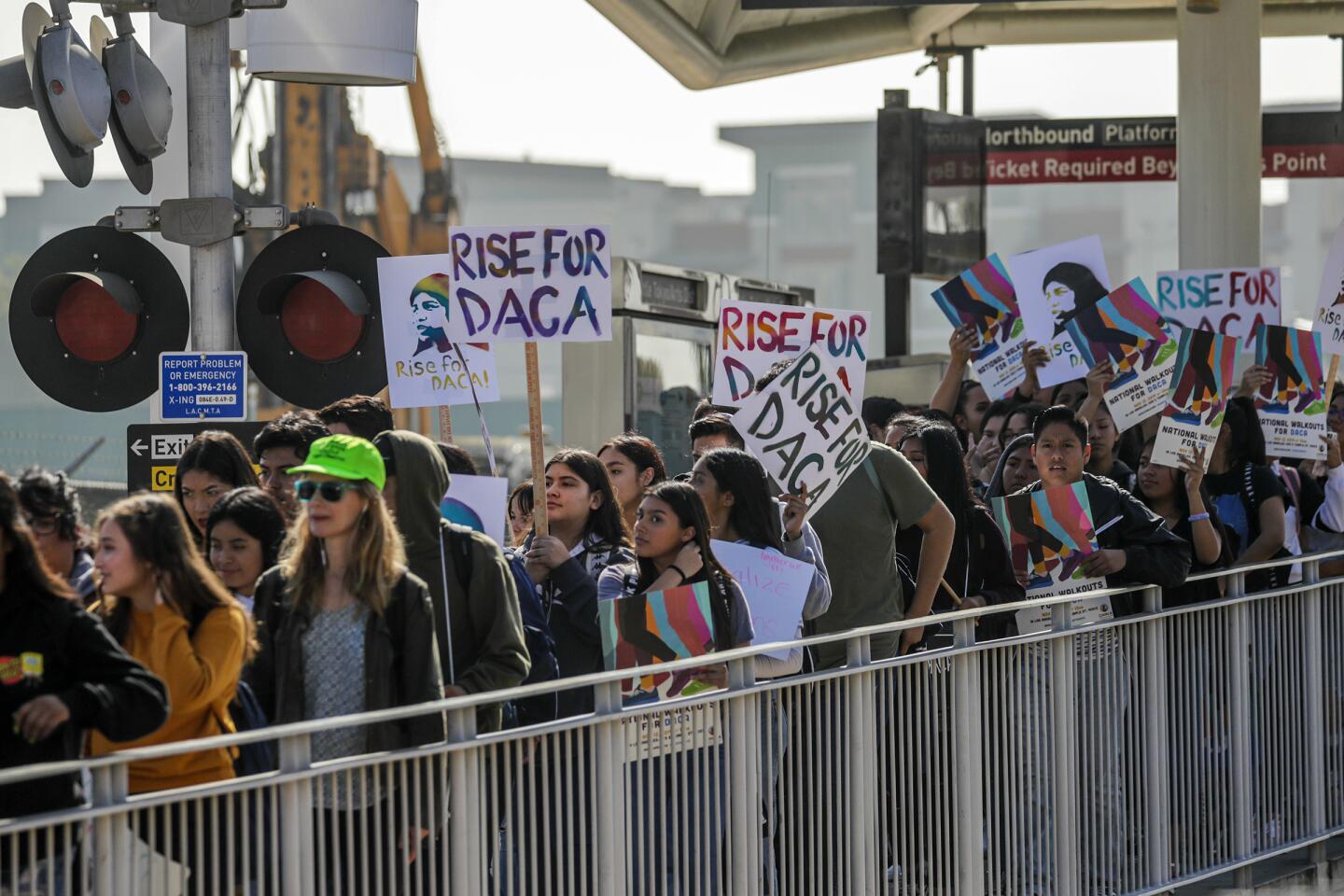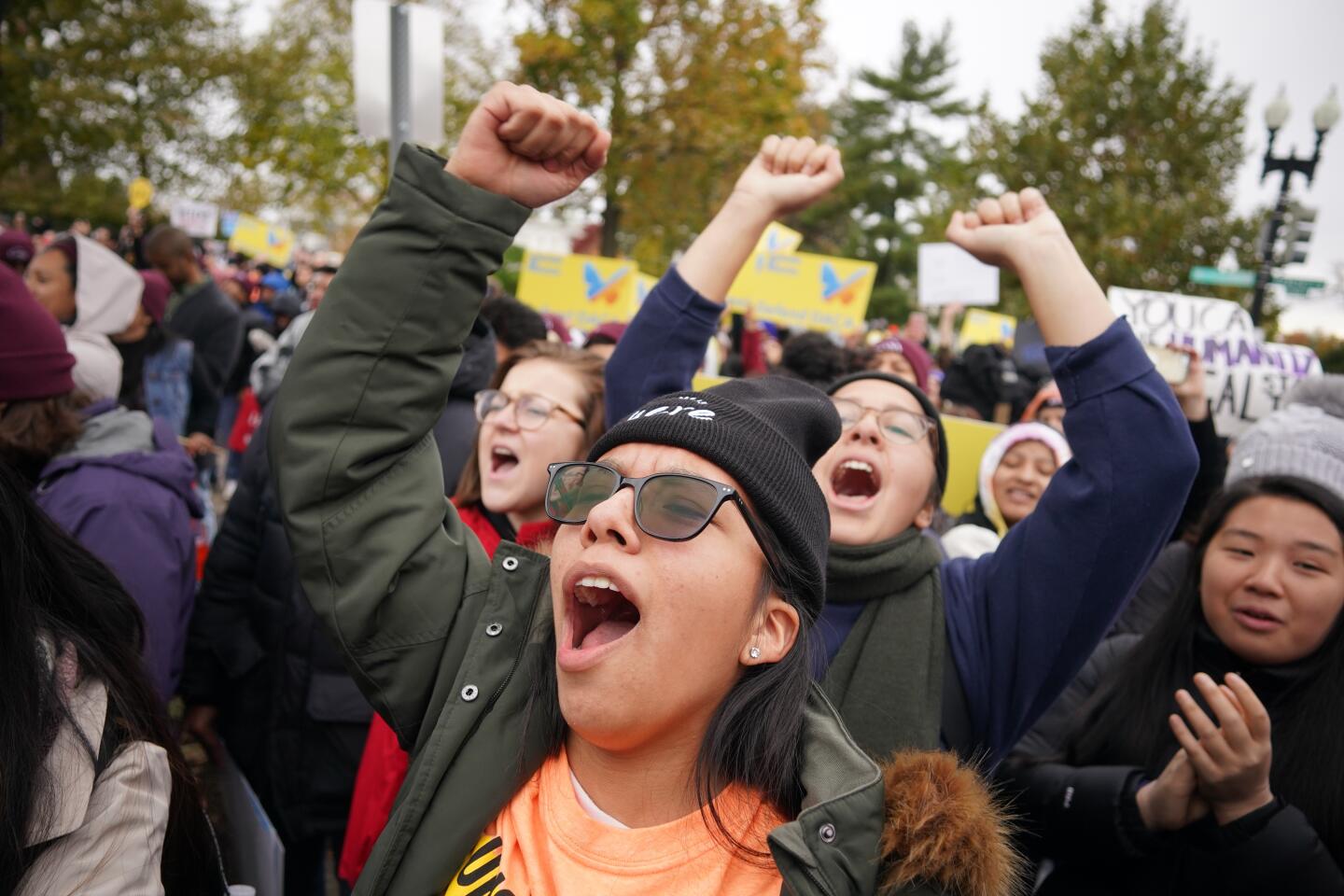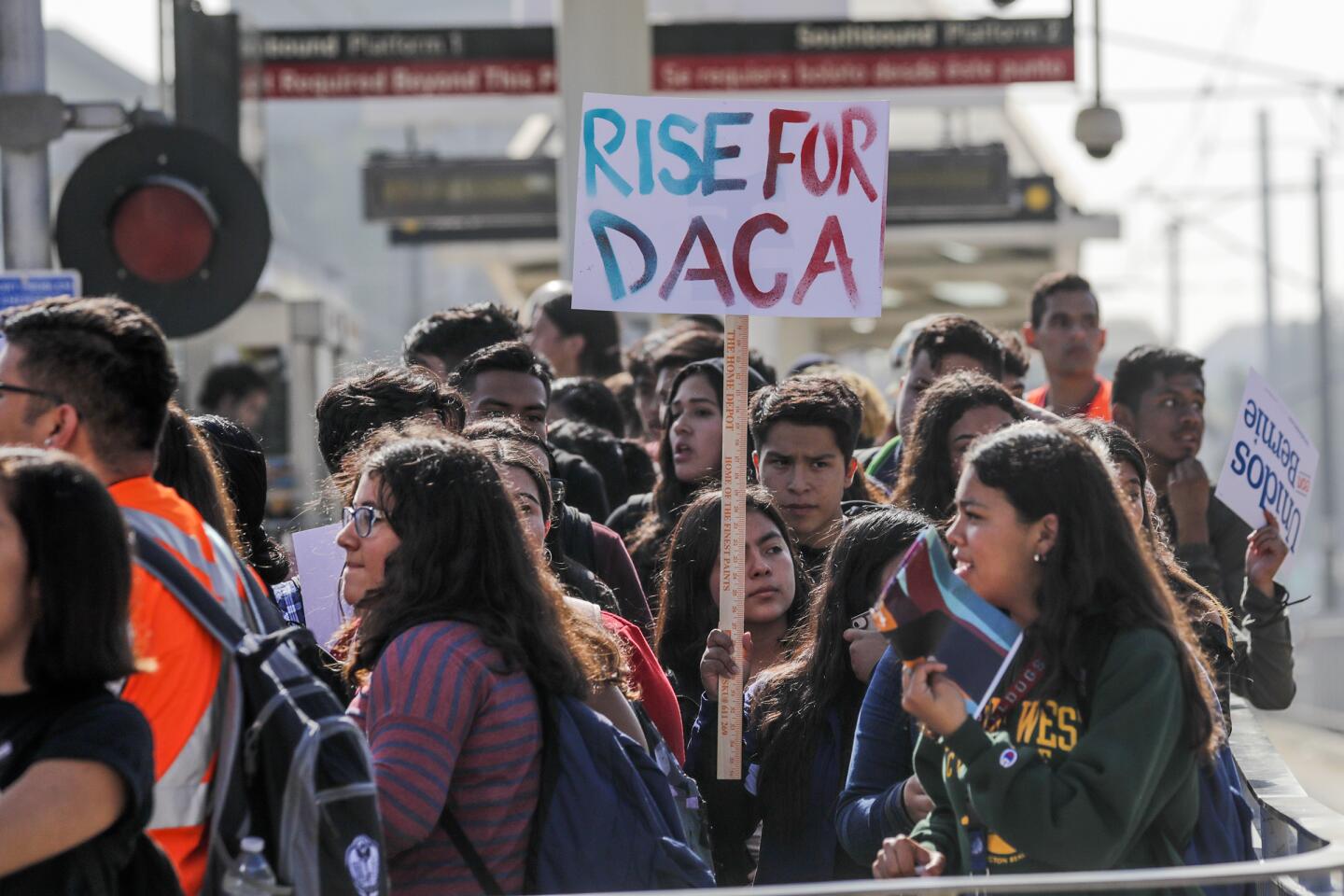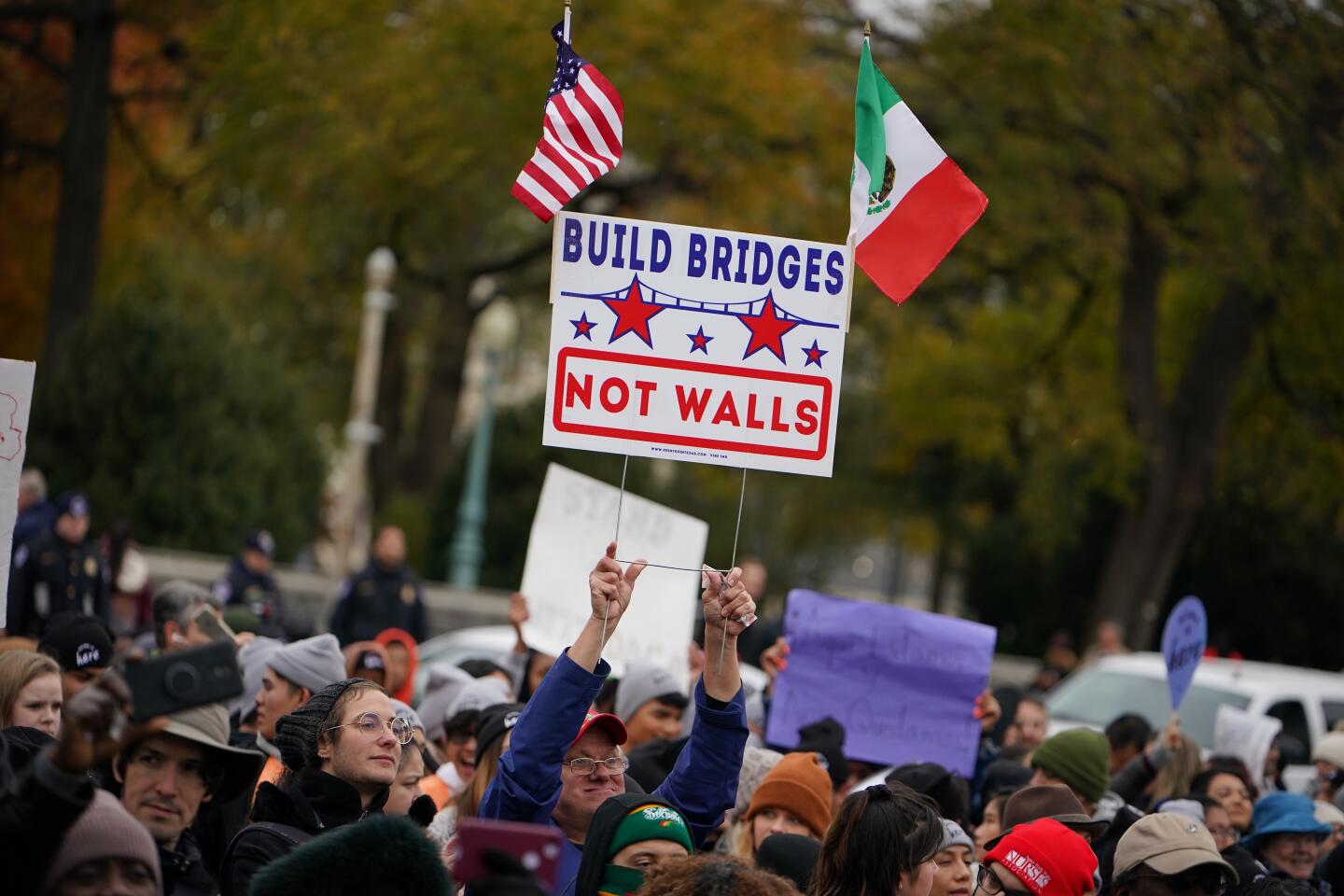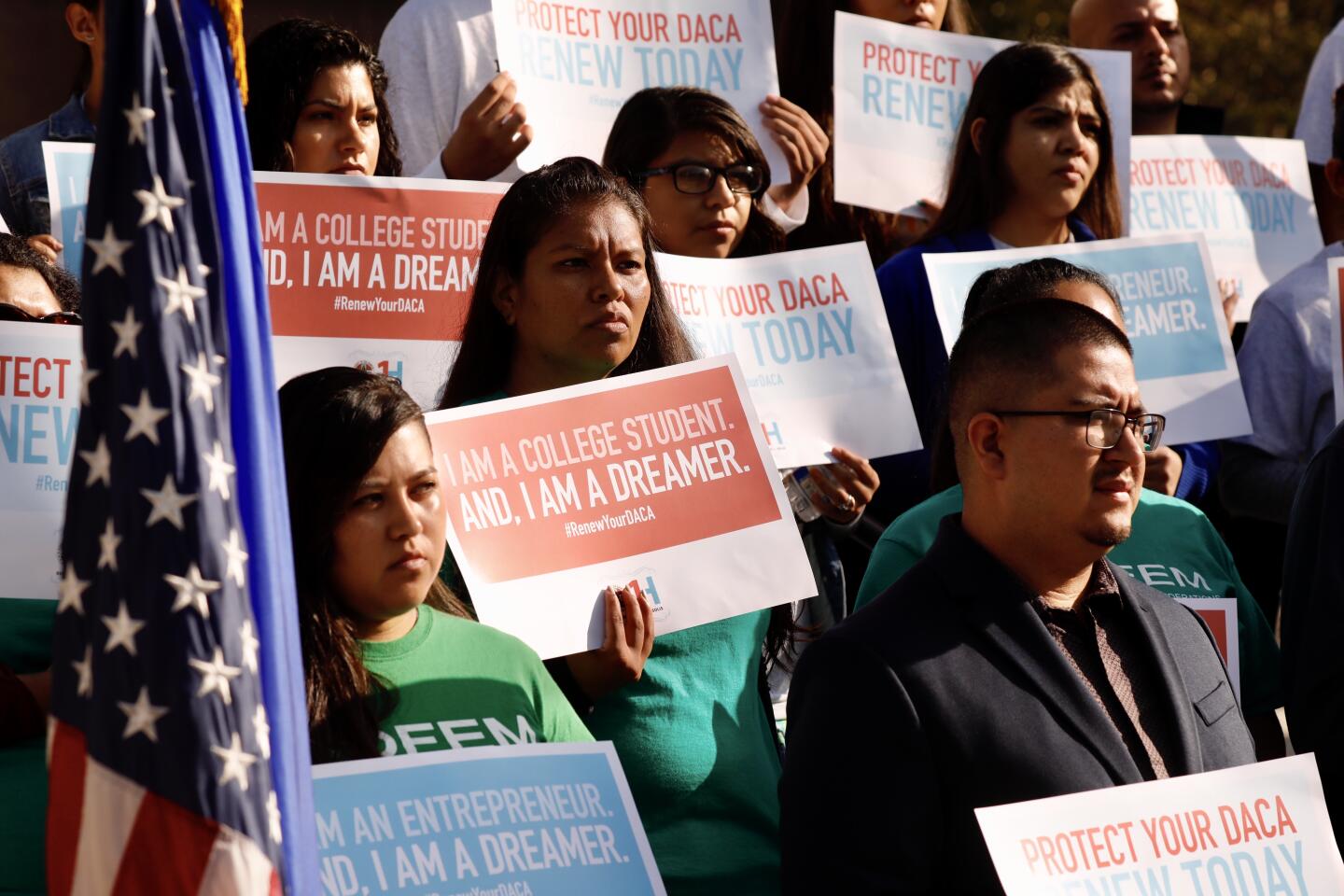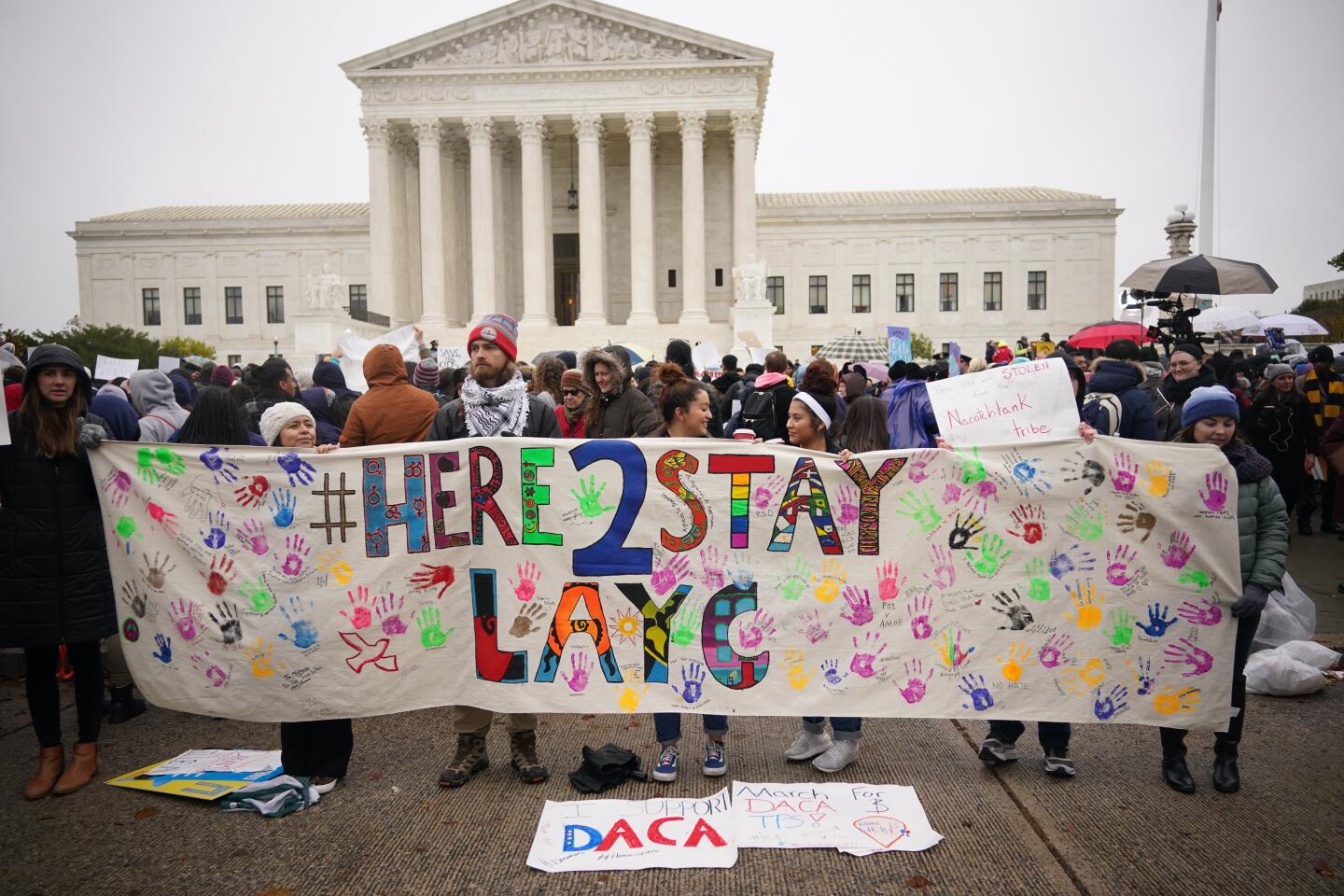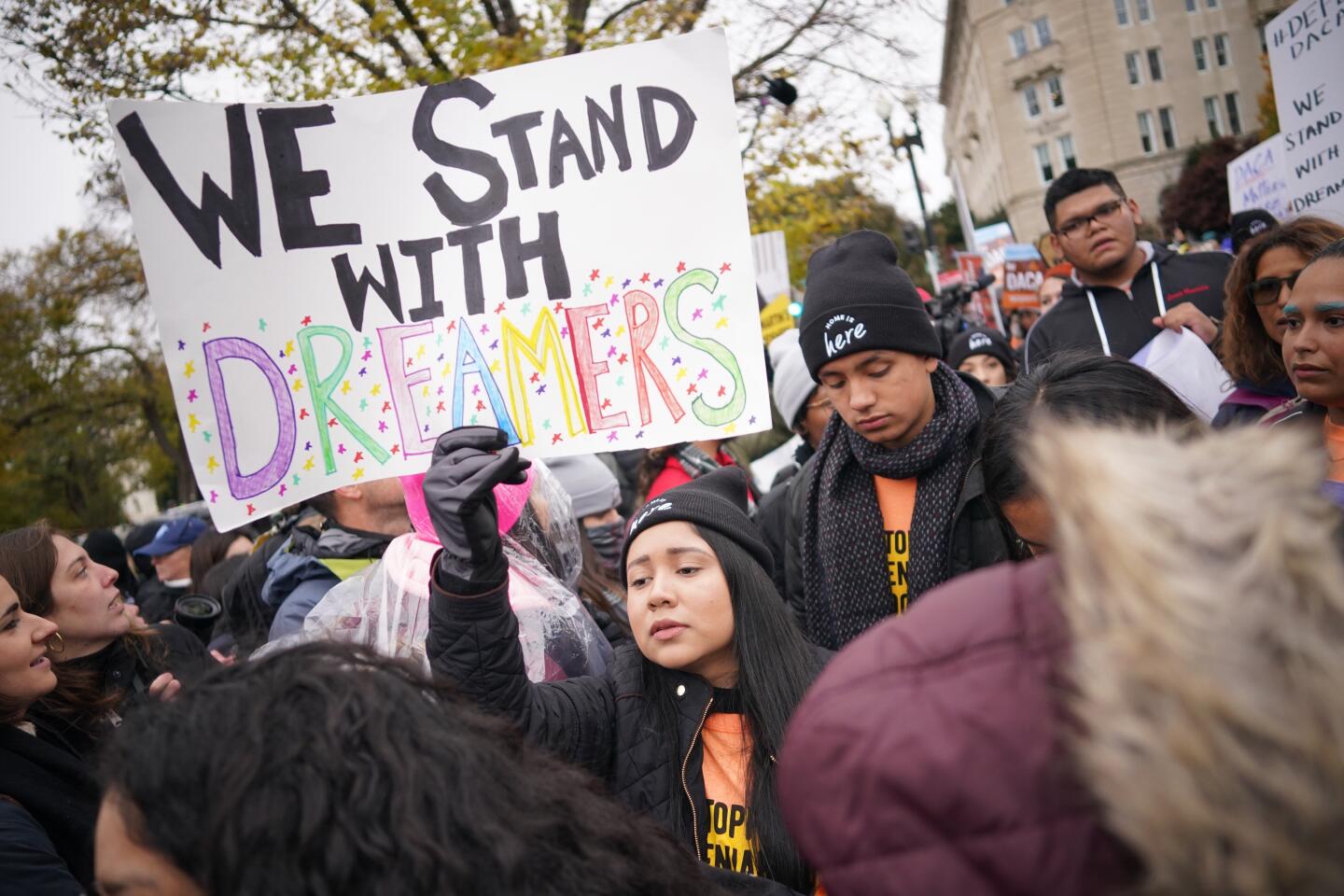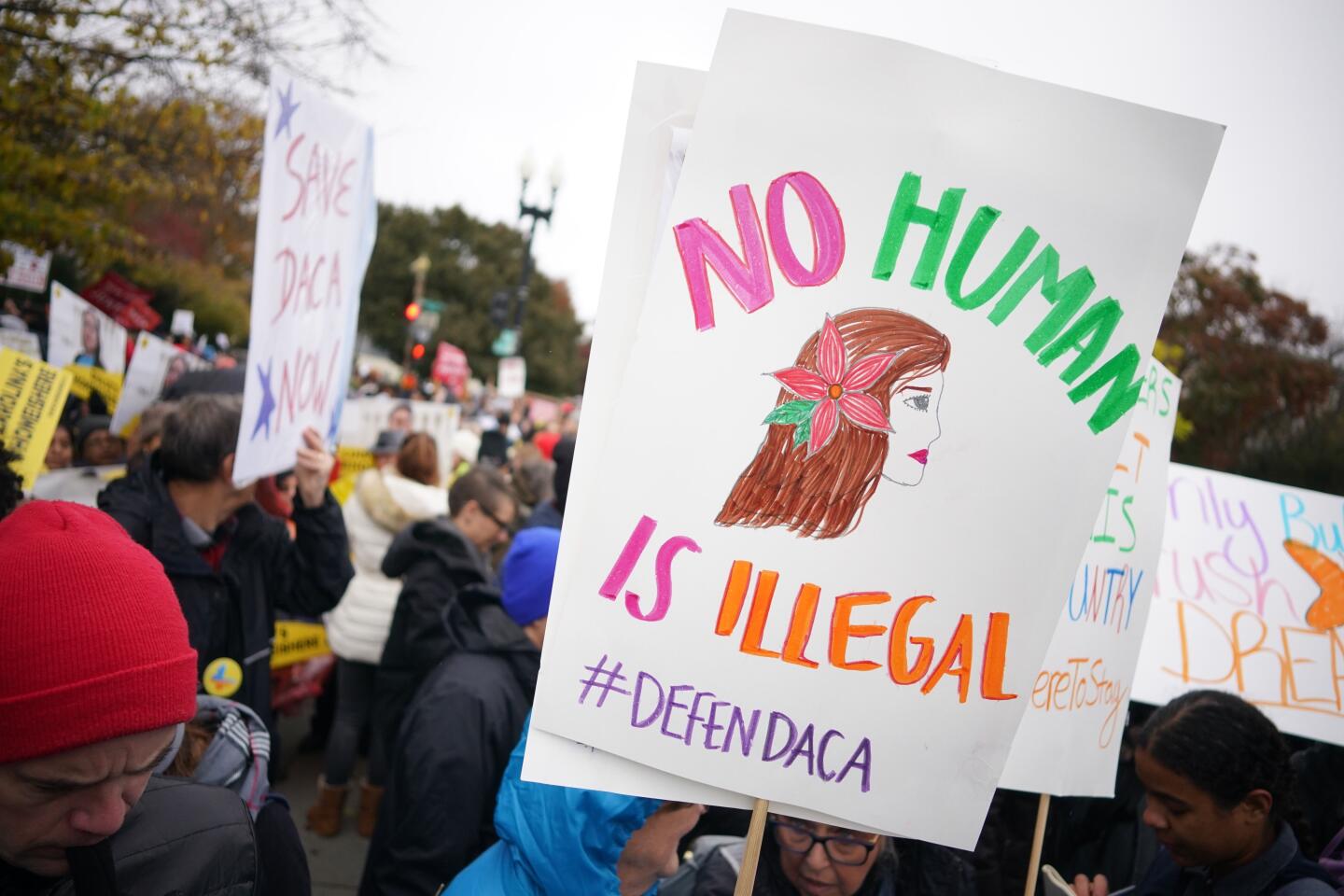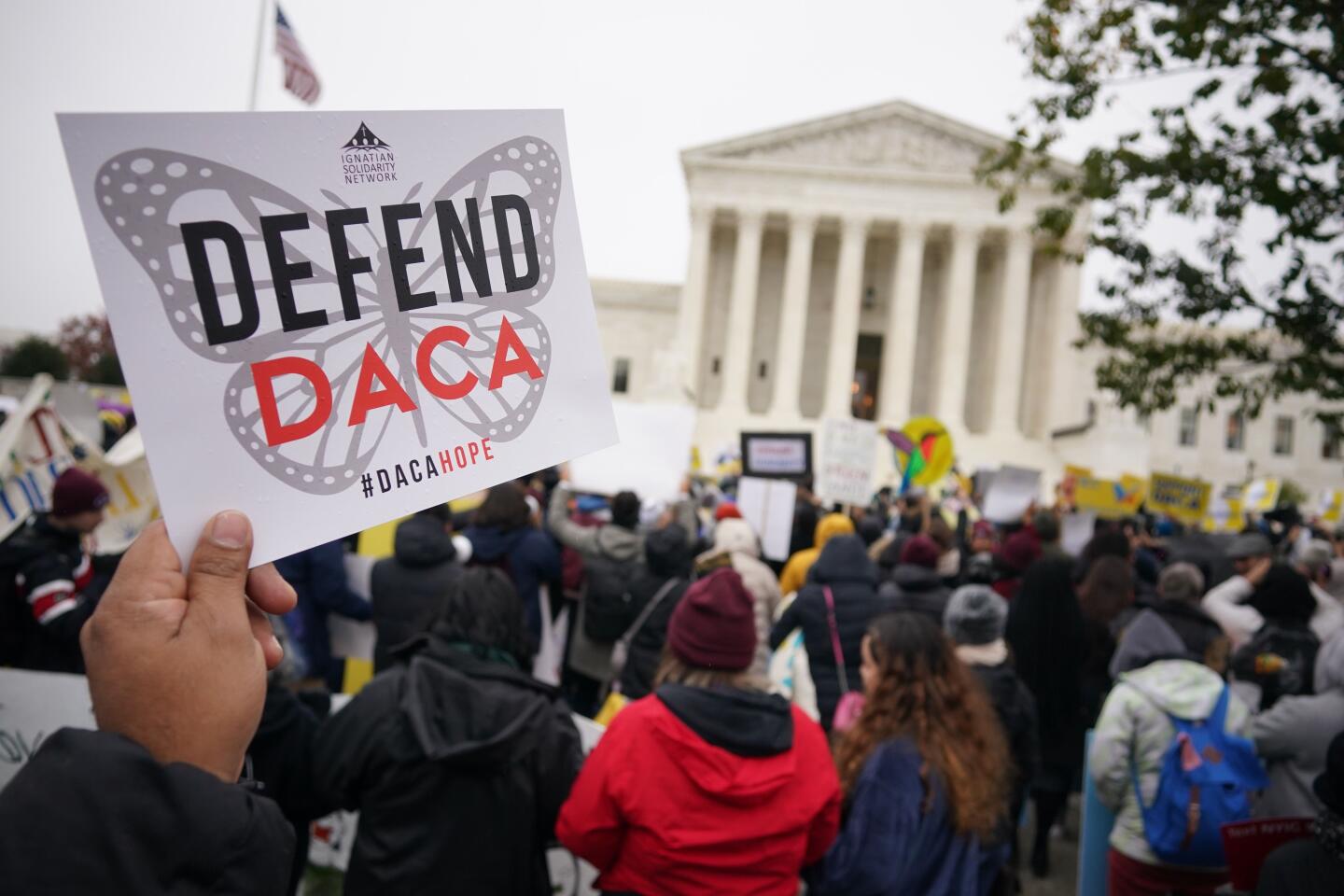DACA in doubt as Supreme Court conservatives question its legality
- Share via
WASHINGTON — The Supreme Court’s conservative justices sounded skeptical Tuesday about the legality of an Obama-era policy that has allowed 700,000 young immigrants to live and work in the United States, suggesting they may clear the way for President Trump to end the program.
Chief Justice John G. Roberts Jr., whose vote is likely to be the deciding one, appeared to agree with Trump’s claim that Obama’s policy of protecting the so-called Dreamers was legally questionable, undercutting the main legal argument used by lower courts and supporters of the program.
Trump’s solicitor general, Noel Francisco, urged the justices to toss out rulings from three federal judges and allow the president to “wind down” the program known as Deferred Action for Childhood Arrivals. He called DACA a “temporary stop-gap measure that could be rescinded at any time.”
He ran into steady criticism from the court’s four liberal justices. But Roberts and the four other conservatives leaned in his favor.
At several points, Roberts suggested that the Trump administration may be on firm ground in thinking DACA was illegal. He noted that a similar, more far-reaching Obama immigration order — protecting as many as 4 million immigrants who were parents of some U.S. citizens or lawful residents — had been blocked by the 5th Circuit and then the Supreme Court in a tie vote.
“Do you need more than that?” Roberts asked. “Can’t he just say that’s the basis on which I’m making this decision?”
At issue Tuesday was an unusual test of presidential power as well as a legal struggle over the fate of hundreds of thousands of young adults who were brought to the United States illegally when they were children. More than one-fourth of them live in California.
For two years, Trump has insisted he had to shut down DACA on the grounds that Obama exceeded his authority by shielding Dreamers from deportation and offering them the right to work.
Trump lost repeatedly before federal judges in California, New York and Washington, D.C. They said Trump was operating on the “flawed premise” that Obama’s policy was illegal, and that the administration had failed to provide any other reasonable rationale for ending the program.
Three years ago, Roberts and the court’s conservatives blocked a similar Obama immigration order, known as Deferred Action for Parents of Americans, or DAPA. Because Justice Antonin Scalia had died a few months earlier, the high court deadlocked 4 to 4 and issued no opinion. But that affirmed the lower court’s ruling blocking Obama’s policy.
Roberts’ comments Tuesday suggest conservatives view the DACA program similarly.
Ted Olson, who was solicitor general under President George W. Bush, argued for the Dreamers and said ending the program would trigger “abrupt and substantial disruptions in the lives of 700,000 individuals,” including their families, employers, communities and the armed forces. He was joined by California Solicitor Gen. Michael J. Mongan, who said Trump’s proposed repeal was “founded on the incorrect legal premise that DACA is unlawful.”
Roberts objected. He said Trump’s lawyers had reason to at least doubt the legality of the program. “Is it enough to say, ‘Look, I’ve got a decision from the 5th Circuit that tells me this is illegal, [and] it’s been affirmed by the Supreme Court by an equally divided vote?’”
No, Mongan replied. “It’s not enough to sustain the decision, your honor. Given the nature of this program and the interests at stake, we don’t think that any genuine statement of legal doubt or litigation risk would be adequate.”
At another point, the chief justice said Obama’s policy was aimed more at offering work permits, not protection from deportation.
“The whole thing was about work permits and these other benefits. Both administrations have said they’re not going to deport the people. So the deferred prosecution or deferred deportation, that’s not what the focus of this policy was,” he told Olson. His comments echoed conservative critics who said Obama’s non-enforcement policy violated the immigration laws because it offered legal work status to people who were in the country illegally.
During Tuesday’s argument, Justices Ruth Bader Ginsburg, Stephen G. Breyer, Sonia Sotomayor and Elena Kagan sounded ready to affirm the rulings by three judges who had blocked the repeal.
They said the repeal should be reconsidered by the Trump administration because Elaine Duke, an acting Secretary of Homeland Security, wrote a repeal memo that suggested DACA was illegal, based on the advice of then U.S. Atty. Gen. Jeff Sessions. “We don’t know how she would respond if there were a clear recognition that there was nothing illegal about DACA,” Ginsburg said.
Though some justices questioned whether Trump’s termination of the DACA program was even something that the courts could or should review, Roberts disagreed with Francisco’s claim that Trump’s repeal was off limits to judicial review.
The case heard Tuesday is Department of Homeland Security vs. Regents of the University of California.
Obama announced the special protection for the Dreamers in 2012, and the policy has gained steadily in popularity. Opinion polls in the last year have found that more than three-fourths of those surveyed — both Republicans and Democrats — support granting legal status to the Dreamers.
Trump has said that a court victory that would allow him to end DACA might put pressure on Congress to pass legislation protecting Dreamers. But efforts to find a legislative compromise failed last year, chiefly because Trump and Republicans demanded additional concessions in return for protecting the young immigrants.
More to Read
Get the L.A. Times Politics newsletter
Deeply reported insights into legislation, politics and policy from Sacramento, Washington and beyond. In your inbox twice per week.
You may occasionally receive promotional content from the Los Angeles Times.
